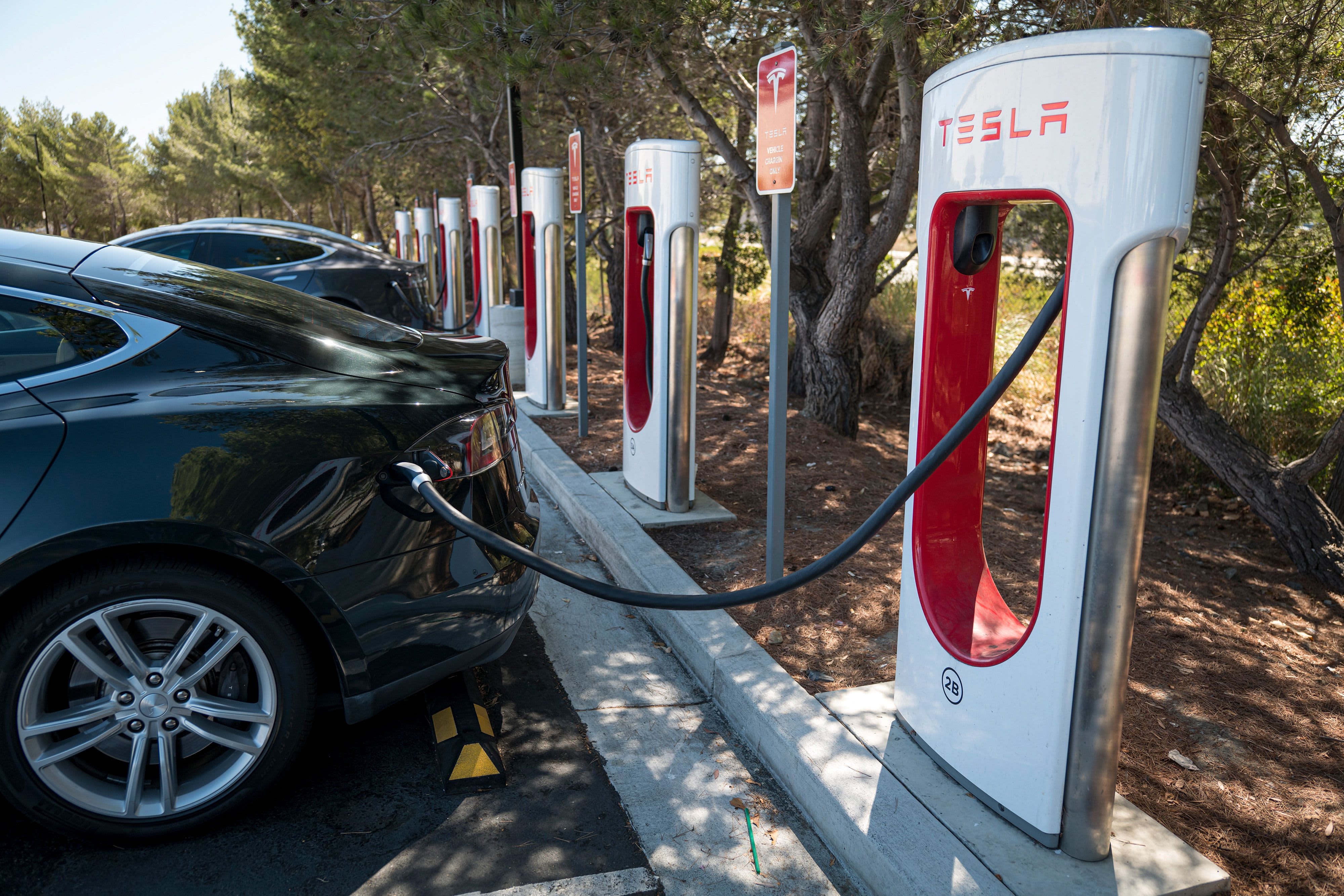Tesla won’t be ‘king of the hill’ in electric vehicles forever, says ex-board member Steve Westly

Steve Westly, a longtime Tesla bull and former board member, told CNBC on Tuesday that competition in the electric-vehicle sector has heated up and put significant pressure on the Elon Musk-led company.
“I’ve been bullish on Tesla for the last 10 years. It’s hard to imagine an auto company executing better than Tesla has,” Westly said on “Power Lunch,” referencing the company increasing its revenue to $31.5 billion in 2020 as well as its future projections.
For example, in its earnings release in late January, Tesla said across a “multi-year horizon, we expect to achieve 50% average annual growth in vehicle deliveries.”
“No one else in the auto world is doing that. Having said that, Tesla is not going to be king of the hill in electric forever,” said Westly, a venture capitalist who also was an early investor in Tesla. He now serves as managing partner of The Westly Group.
Tesla continued its dominance in the U.S. for electric-vehicle sales in 2020, according to plug-in vehicle market database EV Volumes.
Shares of Tesla are down year to date, but the stock remains up about 360% over the past 12 months. Tesla was added to the benchmark S&P 500 in December, and it has the largest market capitalization of any automaker, checking in at almost $651 billion as of Tuesday’s close.
However, Tesla has long been a battleground stock on Wall Street, and now after its massive run in 2020, some bearish observers believe it’s soared way too high, way too fast.
While most legacy automakers have been playing up to Tesla, Westly said it’s important to note the major commitments around electric vehicles from companies such as General Motors and Volkswagen AG. Most recently, Sweden’s Volvo Cars said Tuesday its goal was to become “a fully electric car company” by 2030.
“And what’s interesting is Tesla is not just getting hit from the high end,” Westly said, noting luxury electric vehicles are being offered by Volkswagen AG’s brands such as Audi and Porsche. California-based Tesla is also seeing more affordable competitors, particularly Chinese rivals, looking to take market share, Westly said.
While Westly did not name specific companies, Chinese electric-vehicle start-ups Nio, Li Auto and Xpeng are listed on U.S. stock exchanges.
Westly said he also is focused on developments in Europe, which is likely to be the second-largest market for electric vehicles behind China in 2021, according to IHS Markit. “What’s interesting is in markets that Tesla has dominated, like Europe, where they historically were No. 1, they’re now No. 4,” Westly said.
“They’re getting competition from all sectors. They’re going to have to double down to compete,” added Westly.
In recent years, Tesla has been working to build new assembly plants to scale up production, as demand for electric vehicles across the world increases. The company opened a factory in China in 2019 that was built in just under a year. In 2020, Tesla’s sales in China more than doubled.
Tesla also is pursuing an assembly plant in Germany, and last summer Musk announced the company’s intentions to build its newest factory near Austin, Texas. “In Berlin and Austin, we remain on track to start vehicle production this year with structural batteries leveraging in-house battery cells,” Tesla said in its January earnings presentation.
It’s not just companies with long track records selling internal-combustion vehicles such as General Motors and Ford that are boosting their investments in electric vehicles. There are several upstarts, such as Lucid Motors, Rivian and Fisker, attracting attention on Wall Street as they attempt to bring electric vehicles into market.
With so many companies pursuing electric vehicles, it has led some to wonder how supply chains for crucial components such as battery cells will hold up. “That’s our No. 1 question right now, to be honest,” Morgan Stanley auto analyst Adam Jonas told CNBC last week.
For Tesla, specifically, Westly said he is not worried about its positioning around batteries. For the industry writ large, Westly said he is watching the semiconductor shortage particularly closely. “Silicon Valley was built on making semiconductors … but increasingly, semiconductor production has moved to China, Taiwan and [South] Korea. That should be a wake-up call for America,” he said.




